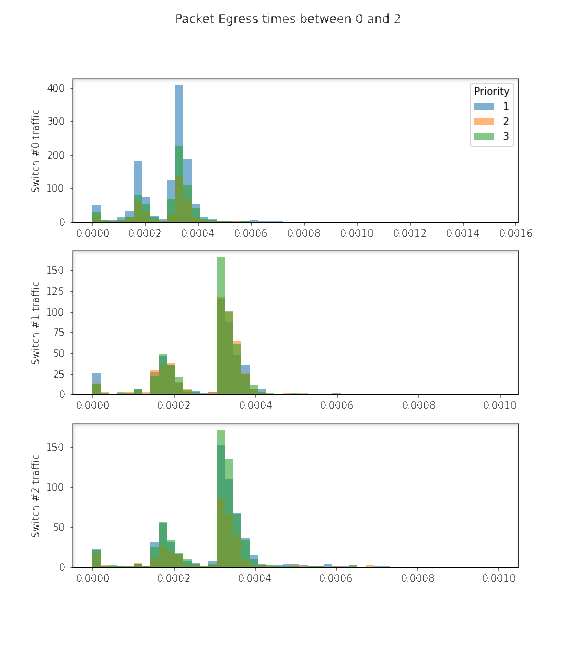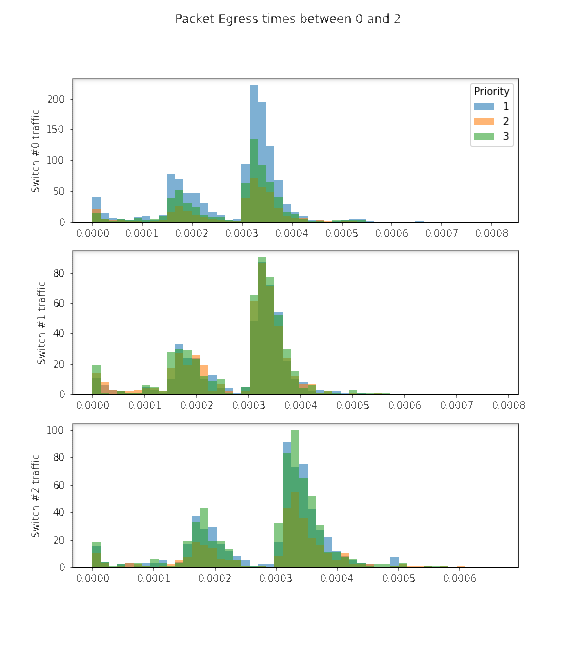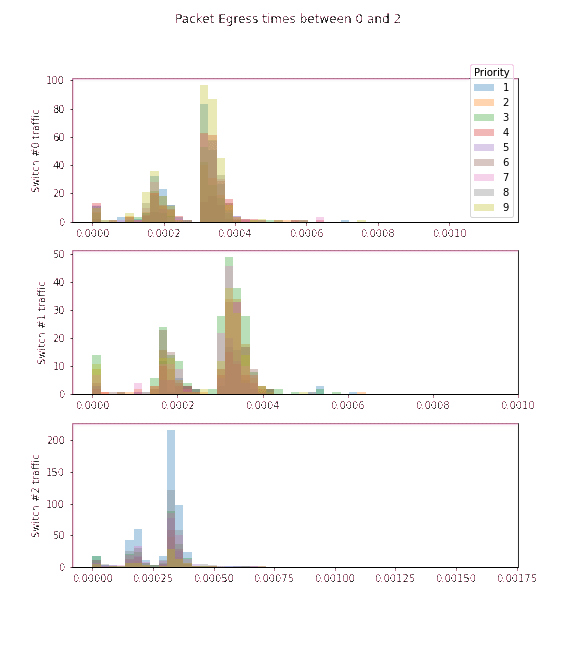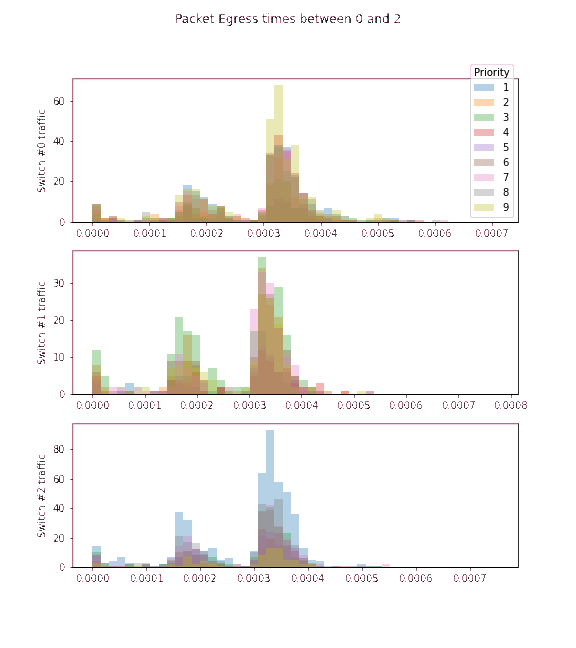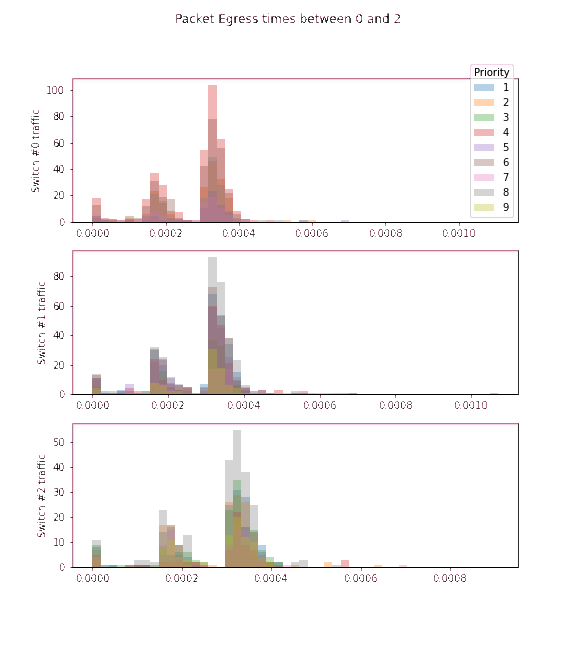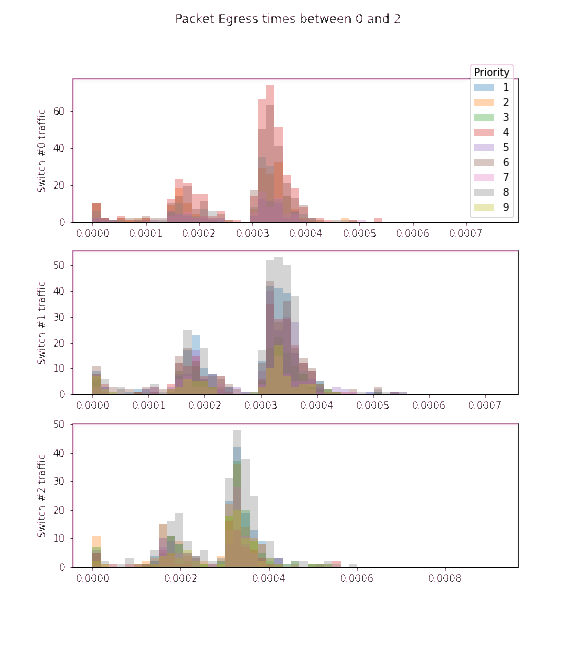For this project, we aimed to reproduce the DeepQueueNet paper, which aims to use deep learning to simulate per device packet queueing times in a discrete event simulator (DES). Standard DES's, such as ns-3 or ns.py, lack the scaleability necessary to be practical for modern networks, which can have hundreds of nodes in the topology, and switches with many ports. Deep learning affords us the opportunity for device level parallelization and the ability to process packets in batches, without sacrificing the fine-grainedness of the simulator (as with EPE's or continuous simulators). Below we show animated histograms showing the simulated queueing times for ns.py (left) vs. our implementation of DeepQueueNet (right) using a variety of different schedulers. The traffic for these plots was generated using a Poisson process.
NOTE: Currenty, only the fattree topology is supported for data generation/training/inference
In order to run a simulation, we can use src/data_gen.py to run a simulation using ns.py to create ground truth traces.
The command-line arguments for the data generation are specified here; all options apply to all switches in the network:
--port-rate: Port Rate in bits per second (default: 50 Mbps)--buffer-size: Buffer Size in bytes (default: 100 KB)--mean-pkt-size: Mean packet size in bytes (default: 1000B)--scheduler: which packet schedueler to use. Options are FIFO, SP, DRR, and WFQ. (default: FIFO)--traffic-gen: which type of traffic generation to use. Options are Poisson or OnOff. (default: Poisson)--num-ports: Number of ports per switch. (default: 4)--num-flows: Number of flows to generate. (default: 100)--duration: How long the simulation should last in seconds (default: 30 seconds)--output-dir: Which folder the output traces should be written to. (default: data)--output-name: Name of output trace. (default: rsim)


